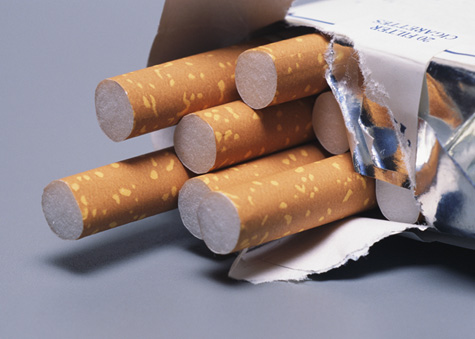

Our
mission is to reduce the number of injuries and deaths due to
injuries,
through prevention, improved trauma care, and improved rehabilitation.
Trauma Foundation
SF General Hospital
Bldg 1 Rm 300
San Francisco, CA 94110
Phone:415/821-8209
Fax: 415/821-8202
email: tf@tf.org
'The Canadian
tobacco industry has been opposing this initiative,' commented Francois
Damphouse. It claims that RIP cigarettes might be more toxic for smokers. It
also argues that smokers find these cigarettes less acceptable. However, the
industry's own confidential research documents show otherwise.
--Physicians
for a Smoke-Free Canada & Non-Smoker's Rights Association press release,
March 31, 2004
Each year, cigarette ignited fires needlessly cause hundreds of deaths. We can no longer tolerate losing one more innocent child or putting one more firefighter at risk in a fire that could have been prevented.
--Rep. Peter King (R-NY)
April
5, 2004
 Canada's
Parliament Passes
Canada's
Parliament Passes
Fire-Safe Cigarette Legislation
Following the lead of New York state, the Canadian
Parliament passed legislation that will reduce the number of
cigarette-caused fires in Canada. Bill C-260, an Act to amend the Hazardous
Products Act (fire-safe cigarettes), will make it mandatory for all tobacco
manufacturers to sell reduced ignition propensity (RIP) cigarettes by the
end of this year.
As in the United States, cigarette-caused fires are the leading cause of
fire-related deaths in Canada. Canada's Non-Smokers' Rights Association and
Physicians for a Smoke-Free Canada report that, "according to data from
the Canadian Association of Fire Chiefs, 356 people were killed and a
further 1,615 were injured in such fires between 1995 and 1999 (the latest
data available). These fires have also caused more than $200 million worth
of property damage."
have also caused more than $200 million worth
of property damage."
"For years, the tobacco industry has tried to blame its customers for
these
fires, without looking at its own responsibility to make a safer
product,"
said Toronto lawyer, Douglas Lennox. "Cigarette fires kill smokers and
non-smokers alike, including children, the elderly, firefighters and anyone
caught in the path of such a blaze" (-Physicians
for a Smoke-Free Canada & Non-Smoker's Rights Association press release,
March 31, 2004).
Canada has passed powerful legislation that will make use of the same
regulations and testing protocols for cigarettes with reduced ignition
propensity as the state of New York. All cigarettes sold in New York
will have to comply to a specific RIP standard as of June 30, 2004.
In August 2003, in our update on the fire-safe cigarette we wrote,
"First New York, Then the Nation." In 2000 New York State passed
the nation’s first law requiring the establishment of a fire safety
standard for cigarettes sold in the state that was due to take effect July
1, 2003 (those regulations as noted above are set to go into effect by June
30, 2004). Little did we know then that New York would lead to Canada's
national legislation. There is continued progress, however, being made in
the U.S. Representative Edward Markey (D-MA) and Congressman Peter
King (R-NY) have just introduced fire-safe cigarette legislation (The
Cigarette Fire Safety Act of 2004). This bipartisan legislation will set a
reasonable ignition standard for cigarettes and help to prevent an estimated
800 deaths, 2,200 injuries, and nearly $560 million dollars in damages
caused by cigarette ignited fires every year. The bill has 38
sponsors. The legislation has been endorsed by the National Fire Protection
Agency (NFPA), the Congressional Fire Services Institute (CFSI), National
Association of State Fire Marshals, The National Volunteer Fire Council, the
American Cancer Society, the American Heart Association, the American Lung
Association, the Campaign for Tobacco-Free Kids and the Trauma
Foundation.
Public health advocates in the United States should be grateful for Canada's groundbreaking legislation. The mandate for fire-safe cigarettes just over the border cannot help but further force the tobacco industry to make all of the cigarettes available in the United States fire-safe as well.
Other Resources
Physicians for a Smoke-Free Canada
Non-Smokers Rights Association
Trauma Foundation Resources
- Sleeping Death
- Burning Down the House --Cigarette Manufacturers Choose Profits Over Safety
- Update on the Fire-Safe Cigarette– How New York State Legislation Will Lead to the Availability of Fire-Safe Cigarettes Across the Nation
- Other
Trauma Foundation Fire-Safe Cigarette info
 |
 |
|---|